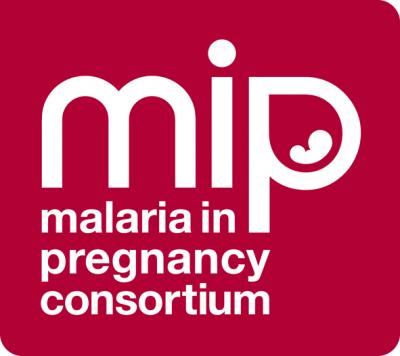
New advances in the treatment and control of malaria in pregnancy
Malaria in pregnancy is one of the leading causes of adverse pregnancy outcomes. Current control strategies are under threat due to increasing drug resistance and suboptimal coverage with existing tools. LSTM has been the coordinating centre of the Gates-EU-funded ‘Malaria in Pregnancy Consortium’, a network of 40 research institutions, that aimed to improve the control of malaria in pregnancy. Research led by LSTM, consisting of meta-analyses, observational studies, and multicentre trials, has contributed directly to WHO and endemic country policies on the treatment and prevention of malaria in pregnancy in different transmission and drug resistance strata in sub-Saharan Africa and Asia-Pacific.
Research Outputs
Hill J, D'Mello-Guyett L, Hoyt J, van Eijk AM, ter Kuile FO, Webster J. Women's access and provider practices for the case management of malaria during pregnancy: a systematic review and meta-analysis. PLoS medicine. 2014;11(8):e1001688. doi: 10.1371/journal.pmed.1001688.
Dellicour S, Sevene E, McGready R, Tinto H, Mosha D, Manyando C, et al. First-trimester artemisinin derivatives and quinine treatments and the risk of adverse pregnancy outcomes in Africa and Asia: A meta-analysis of observational studies. PLoS medicine. 2017;14(5):e1002290. Epub 2017/05/04. doi: 10.1371/journal.pmed.1002290. PubMed PMID: 28463996; PubMed Central PMCID: PMCPMC5412992.
Kayentao K, Garner P, van Eijk AM, Naidoo I, Roper C, Mulokozi A, MacArthur JR, Luntamo M, Ashorn P, Doumbo OK, ter Kuile FO. Intermittent preventive therapy for malaria during pregnancy using 2 vs 3 or more doses of sulfadoxine-pyrimethamine and risk of low birth weight in Africa: systematic review and meta-analysis. (2013). JAMA 309: 594-604.
van Eijk AM, Larsen DA, Kayentao K, Koshy G, Slaughter DEC, Roper C, et al. Impact of Plasmodium falciparum Sulphadoxine-Pyrimethamine Resistance on the Effectiveness of Intermittent Preventive Therapy for Malaria in Pregnancy in Africa: A Systematic Review and Meta-Analysis. Lancet Infect Dis (2019). 19; 5:546-556.
Desai M, Gutman J, L'Lanziva A, Otieno K, Juma E, Kariuki S, et al. Intermittent screening and treatment or intermittent preventive treatment with dihydroartemisinin-piperaquine versus intermittent preventive treatment with sulfadoxine-pyrimethamine for the control of malaria during pregnancy in western Kenya: an open-label, three-group, randomised controlled superiority trial. Lancet. 2015. doi: 10.1016/S0140-6736(15)00310-4.
Ahmed R, Poespoprodjo JR, Syafruddin D, Khairallah C, Pace C, Lukito T, Maratina SS, Asih PBS, Santana-Morales MA, Adams ER, Unwin VT, Williams CT, Chen T, Smedley J, Wang D, Faragher B, Price RN, Ter Kuile FO, 2019. Efficacy and safety of intermittent preventive treatment and intermittent screening and treatment versus single screening and treatment with dihydroartemisinin-piperaquine for the control of malaria in pregnancy in Indonesia: a cluster-randomised, open-label, superiority trial. Lancet Infect Dis 19: 973-987. Doi: 10.1016/S1473-3099(19)30156-2
Treatment and control of malaria in pregnancy: improved policy guidelines and practice
Research led by LSTM and partners has contributed directly to improved WHO and endemic country policies and practices for the treatment and prevention of malaria in pregnancy in different transmission and drug resistance strata in sub-Saharan Africa and Asia-Pacific.
Specifically, ministries of health in 36 African nations are now implementing a more effective malaria prevention strategy improving the outcome of an estimated 32 million pregnancies at risk annually and thereby the lives of mothers and their infants. The research has also resulted in label changes for the use of artemisinin combination therapies, the most effective antimalarials to date, for treatment of malaria in pregnancy.
Dr Feiko ter Kuile is Professor of Tropical Epidemiology, heading the malaria epidemiology section in the department of Clinical Sciences and LSTM’s malaria research collaboration with KEMRI’s Centre for Global Health Research and CDC’s malaria branch in western Kenya. His main research interest is the epidemiology of malaria and the evaluation of new interventions for the for the control of malaria in children and pregnant women. He headed the Malaria in Pregnancy Consortium, a network of 47 research institutions worldwide conducting research on the treatment and prevention of malaria in pregnancy.
The Malaria in Pregnancy (MiP) Consortium

Led by the Liverpool School of Tropical Medicine, the consortium was established in 2007 with an initial grant of $30 million from the Bill & Melinda Gates Foundation and is also supported by the European Union and EDCTP. The research programme directly benefits the 50 million women globally who face exposure to malaria whilst pregnant every year.
The IMPROVE Consortium was established to evaluate whether intermittent preventive therapy (IPTp) with dihydroartemisinin-piperaquine (DP), with or without azithromycin (AZ), is a viable alternative to current policy for the prevention of malaria and sexually transmitted and reproductive tract infections (STIs/RTIs) in pregnancy in high SP resistance areas in Kenya, Malawi, and Tanzania.
The Consortium comprises two multicentre trials, one conducted among HIV-uninfected women (IMPROVE) and one among HIV-infected women taking co-trimoxazole (IMPROVE-2).







